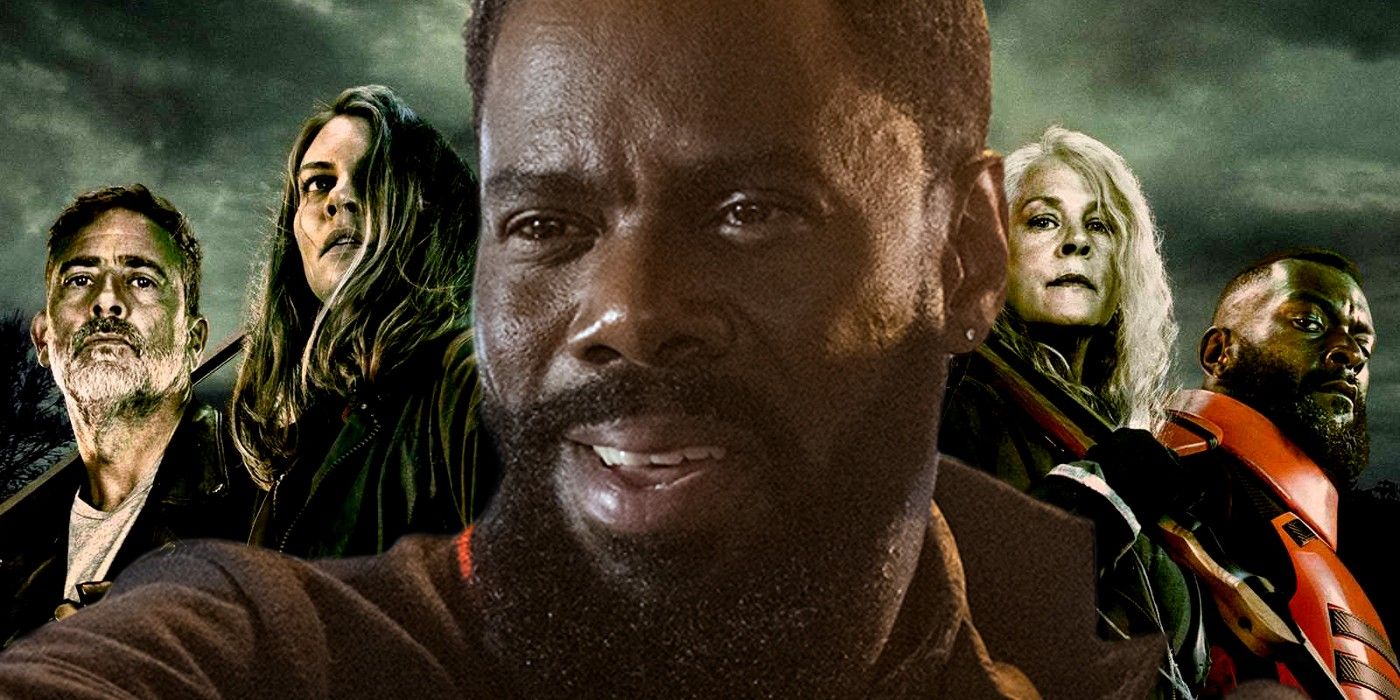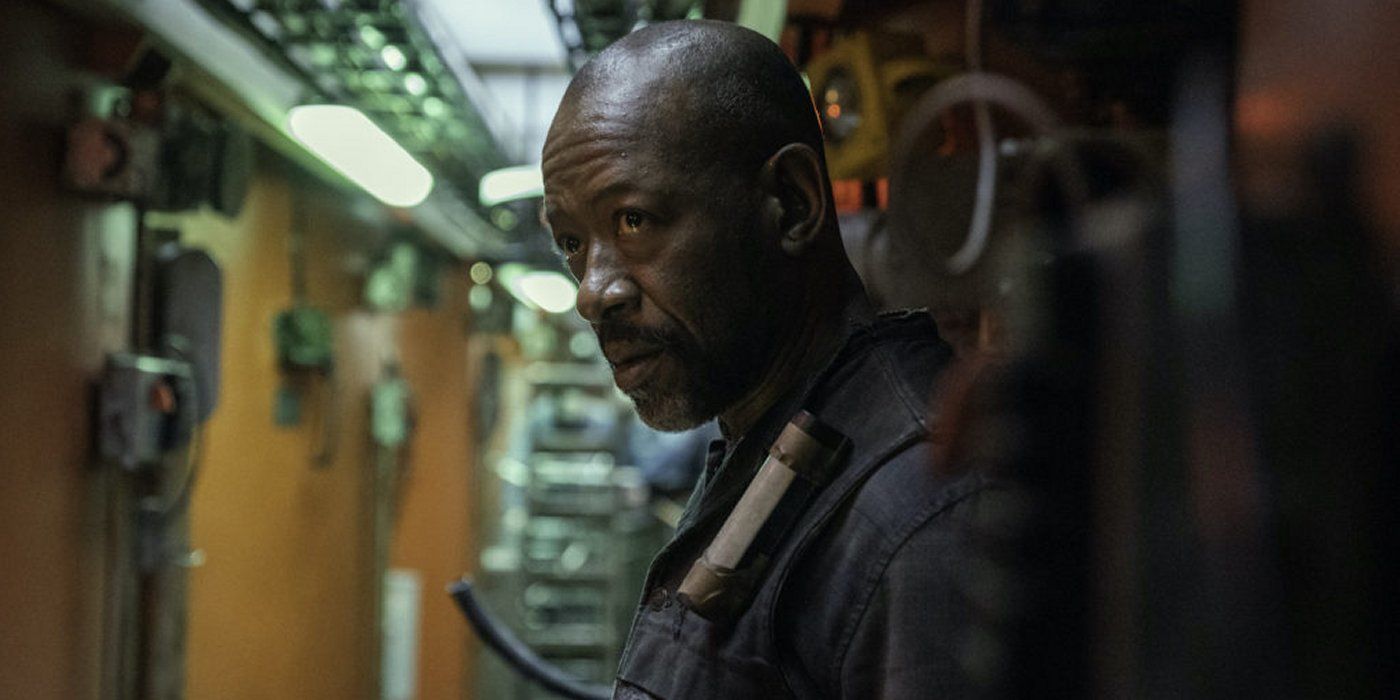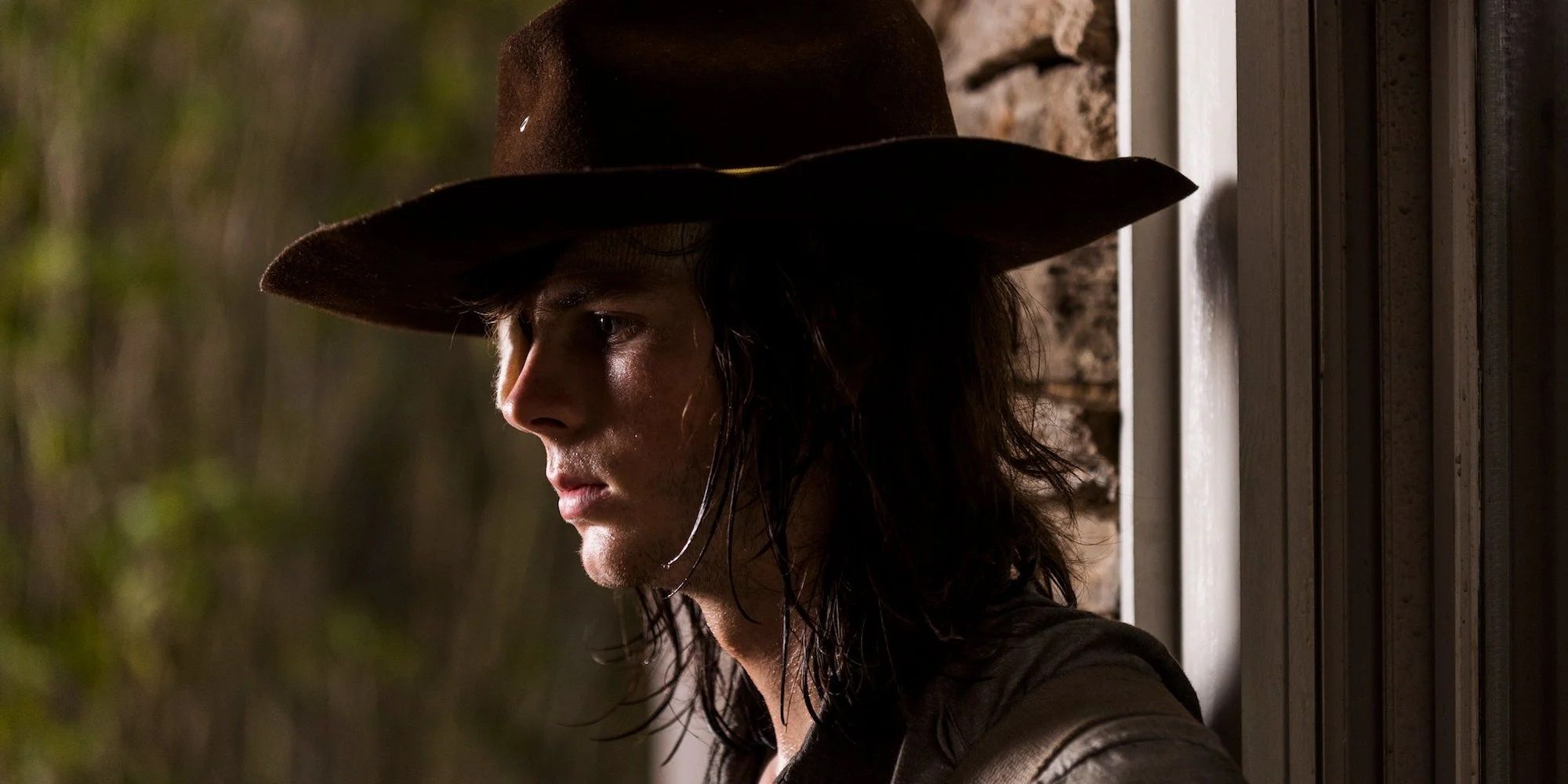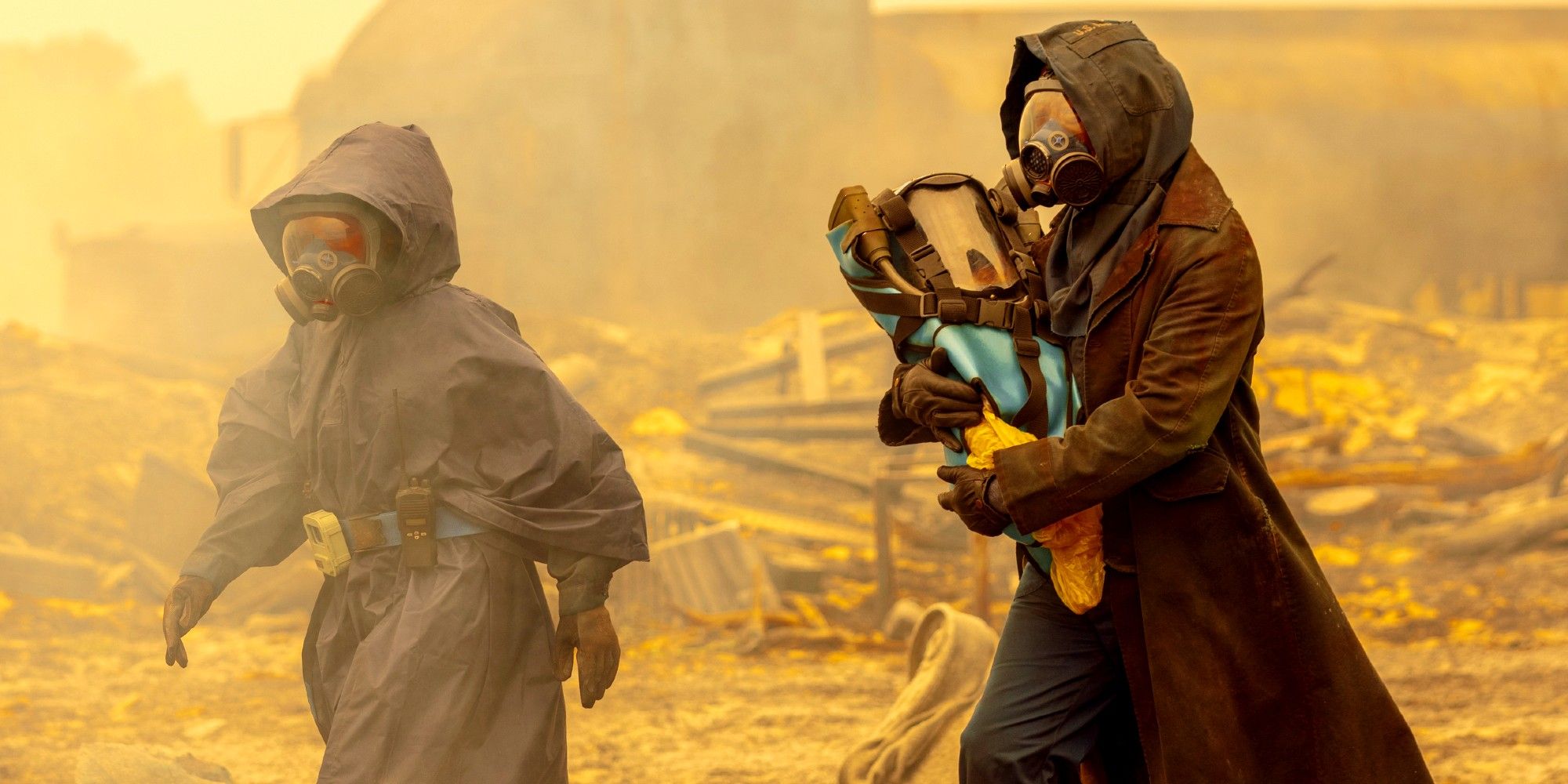Fear The Walking Dead might've started out as The Walking Dead's younger sibling, but recent seasons have seen the spinoff overtake the original. Currently in its final season, there's no arguing The Walking Dead's status as a juggernaut of cable TV. AMC's adaptation of the Robert Kirkman comic overcame a revolving door of cast members, cliffhanger controversy, and an infamously dull season 2 to dominate viewership between 2012 and 2016. So spectacular was The Walking Dead's success, a spinoff became inevitable, and Fear The Walking Dead premiered to a curious audience in August 2015.
Initially billed as a prequel charting the beginnings of the zombie outbreak, Fear The Walking Dead followed the Clark family as they navigated a rapidly changing world, but before long, the narrative had raced to meet The Walking Dead's timeline. The two shows then took advantage of their shared universe, with Fear The Walking Dead borrowing characters and storylines the main show no longer had any use for.
For 6 years, The Walking Dead and Fear The Walking Dead have co-existed, but AMC's spinoff has never eclipsed the numbers or popularity of its predecessor. Both have endured similar ups and downs in quality, but Fear The Walking Dead simply hasn't cracked the mainstream the way The Walking Dead managed over a decade ago. Strangely, however, a critical gulf has emerged - and not the way around you might think. Here's why Fear The Walking Dead is now the franchise's true A-show.
Fear The Walking Dead Season 6 Was The Spinoff's Best
Fear The Walking Dead broadly splits into two eras - the Clark family saga of seasons 1-4, and the Morgan Jones saga between seasons 4-7. Those early seasons following Madison and the gang earned largely positive reviews, but remained overshadowed by The Walking Dead, which was enjoying an especially juicy period of critical acclaim. When Fear The Walking Dead season 4 hit the reset button, killed off most of its original cast, and parachuted in Lennie James' Morgan as the new lead, the spinoff struggled to rediscover its identity. Finally, Fear The Walking Dead found its feet in season 6, which many consider the show's strongest.
Every episode in Fear The Walking Dead season 6 brings its own unique flavor. There's your classic "overthrow the dictator" angle, a flashforward that improves upon the "Carl's dream" idea from The Walking Dead, a whodunit caused by Daniel's unreliable memory, and much more besides. Fear The Walking Dead season 6 committed to innovation, while still managing to advance the season's overarching story at a faster pace than usual. Colby Minifie's Ginny and John Glover's Teddy finally provided the strong antagonists Fear The Walking Dead had been crying out for, and Morgan evolved into the badass protagonist he should've been in The Walking Dead.
Though still early days, Fear The Walking Dead season 7 looks to be continuing that positive trend. Radioactive fallout adds a fascinating new danger to the already less-than-ideal zombie outbreak, and Victor Strand is evolving into the truly evil villain he's been threatening to become since day 1. Alicia's disappearance creates a strong central mystery, and there's a depth of character previous seasons sorely lacked. Aging like a fine, post-apocalyptic wine, Fear The Walking Dead seasons 6 & 7 have been putting out some of the spinoff's best stuff.
The Walking Dead Has Been Declining Since Season 8
If Fear The Walking Dead is now stronger than The Walking Dead, that's not just because the spinoff is getting better - the main show is getting worse. At some point around The Walking Dead season 8, viewership began mimicking a zombie on a hill, and still hasn't reached the bottom. Of course, viewing figures are never an inherent indication of quality, and Fear The Walking Dead's audience is a fraction of what it once was too, but in The Walking Dead's case, critical reaction has also taken a dip.
Audiences have long complained about The Walking Dead's slow pacing and frustrating deviations from the main plot (that road to Terminus was long), but patience was always rewarded with an explosive and/or emotional pay off. The Walking Dead's season 7 cliffhanger (Negan's bloody baseball session) was, however, a tease too far for some, and marked the beginning of AMC's viewership woes. Then came a series of creative collapses - the baffling decision to kill off Carl Grimes, the unfortunate departure of Andrew Lincoln, the weird mini-season between seasons 10 and 11, zombies suddenly taking naps, etc.
Even in The Walking Dead season 11, those long-standing problems haven't improved. As the final chapter to one of TV's biggest ever shows, The Walking Dead season 11 should feel massive, leading toward a climactic conclusion that does justice to over a decade of undead madness. Instead, The Walking Dead season 11 feels like any other season - there's no uptick in pace, no escalation of stakes, and not even a good final villain on the horizon. The narrative lacks direction, and a cynic might suggest The Walking Dead is more concerned with paving the way for spinoffs and movies than it is wrapping up a story 11 years in the making.
Fear The Walking Dead Has More Original Ideas
Any TV series that hits double-digit season numbers will struggle to keep things fresh, and The Walking Dead is no exception. Recent seasons have shaken up the formula with horror-centric episodes ("On The Inside"), flashbacks to the early apocalypse ("Here's Negan"), and a smattering of romance ("Find Me"). Fear The Walking Dead, on the other hand, has taken much bolder steps to remain relevant and innovative in a media landscape swarming with zombie content.
After mirroring The Walking Dead's style and tone in its early seasons, Fear The Walking Dead steadily slipped into a modern day western, helping the spinoff stand out from the horde. Fear The Walking Dead season 7 shuffles the board even more drastically thanks to Teddy's nuclear strike, which transformed the spinoff's Texan setting into a Fallout-style wasteland where radiation will get you if the undead don't. Not only does the barren nuclear wilderness provide striking visuals unlike anything seen in the Walking Dead franchise before, but the extra dangers and new rules (check food for radiation, don't get zombie gore on your skin, etc.) create a totally new environment after years of the same old rotten shtick.
Fear The Walking Dead season 6's Teddy proved far more revolutionary than anything the main show has dared attempt villain-wise. John Glover's character was a serial killer before the outbreak, accidentally released when the undead started rising, and immediately set about turning fellow survivors into mindless followers. Teddy's lack of physical threat (his ability to manipulate was a weapon in itself) was already refreshing, but the self-destructive nuclear launch plan finally moved beyond the typical villain motivations of "we want your food" or "get off my land." Compare this to The Walking Dead's newest villain, Pope. Though there's an intriguing religious twist to his psyche, the Reapers are essentially the same quasi-military enemies we've seen countless times before over the past 11 seasons.
These are just a selection of the original ideas Fear The Walking Dead has employed in a bid to stave off undead fatigue, and deliver new experiences within the relatively narrow confines of the zombie sub-genre. By contrast, The Walking Dead has shied away from change, treading familiar ground and coming off as repetitive.
Fear The Walking Dead Handled Major Cast Exits Better
The Walking Dead and Fear The Walking Dead have both suffered major cast setbacks, but the latter has usually been quicker to dust itself off. Voluntarily or otherwise, The Walking Dead lost Rick, Carl, Michonne, and for a time, Maggie - virtually the entire main lineup within a relatively short period. Rather than picking like-for-like replacements, The Walking Dead shifted to an ensemble that shared the spotlight, and though this was probably the right approach, the execution has been hit-and-miss. Gabriel, Aaron, Ezekiel and Yumiko have all benefited from the increased screen time, but Rosita, Carol, Magna, and Alden faded into the background, and you'd be forgiven for forgetting Lydia is even still around in The Walking Dead season 11. Rather than stepping up as main characters, Negan and Maggie have become victims of character inconsistency, and if rumors of a romance prove true, the fan reaction will be something to behold. At least the ever reliable Daryl Dixon has stayed the course.
Fear The Walking Dead, meanwhile, has lost Madison, Nick (indeed, pretty much everyone related to the Clark family), John Dorie, and countless others across a bloody 6 seasons. The crucial difference lies in how Fear The Walking Dead builds new characters and improves existing ones to plug those gaps. As well as giving Morgan a new lease of life, Grace, Dwight and June have impressively come into their own over recent seasons. At the same time, Fear The Walking Dead veterans Victor Strand and Daniel Salazar have enjoyed huge development and are better than ever before. When new characters are thrown into the mix, their impact is immediate, as seen with Keith Carradine's John Dorie Sr. replacing Garrett Dillahunt's John Dorie Jr.
Fear The Walking Dead once existed in the shadow of The Walking Dead, but now the student has overtaken the master, and the spinoff is succeeding where the original series drags behind.





